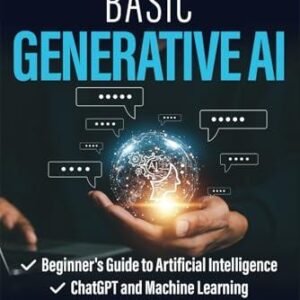In recent years, the landscape of healthcare has undergone a profound transformation, driven by the surge of artificial intelligence (AI) innovations. As technology continues to evolve at an unprecedented pace, the integration of AI into medical practices is not just a trend but a revolution that promises to reshape how we prevent, diagnose, and treat illnesses. From predictive analytics that aid in early disease detection to automated systems enhancing patient care and operational efficiency, AI is redefining the boundaries of what’s possible in medicine. In this article, we will explore the myriad ways AI innovations are revolutionizing healthcare, examining both the opportunities they present and the challenges they pose. Join us as we delve into a future where intelligent technology collaborates with healthcare professionals to improve outcomes and elevate the standard of care.
Table of Contents
- Transforming Patient Care through Predictive Analytics and Personalized Medicine
- Enhancing Operational Efficiency with AI-Driven Automation and Workflow Optimization
- Strengthening Data Security and Compliance in AI-Powered Healthcare Systems
- Implementing Best Practices for Ethical AI Integration in Clinical Environments
- Future Outlook
Transforming Patient Care through Predictive Analytics and Personalized Medicine
The integration of predictive analytics in healthcare is ushering in a new era of patient management and treatment strategies. By harnessing vast amounts of data, healthcare providers can identify potential health risks and intervene proactively. This approach not only improves patient outcomes but also reduces healthcare costs significantly. Some key benefits include:
- Early Detection: Identifying chronic conditions before they escalate.
- Resource Optimization: Ensuring that healthcare resources are allocated where they are needed most.
- Customized Treatment Plans: Tailoring therapies based on individual patient data and predictive insights.
In tandem with predictive analytics, personalized medicine focuses on customizing healthcare treatments based on individual patient characteristics such as genetics, environment, and lifestyle. By utilizing advanced algorithms and machine learning, healthcare professionals can analyse genomic data and patient history to develop targeted therapies. This ensures that patients receive the most effective treatments with minimal risks of adverse reactions. Notable advancements include:
- Genomic Sequencing: Tailoring medication based on genetic profiles.
- Patient Stratification: Grouping patients for clinical trials based on genetic and environmental factors.
- Better Drug Development: Accelerating new therapies through a deeper understanding of disease mechanisms.
Enhancing Operational Efficiency with AI-Driven Automation and Workflow Optimization
In the rapidly evolving landscape of healthcare, AI-driven automation stands at the forefront of enhancing operational efficiency. By streamlining administrative processes and simplifying complex workflows, healthcare organizations can allocate more time to patient care. Key applications include:
- Automated appointment scheduling: Reduces no-show rates and maximizes utilization.
- Document management: AI systems can handle paperwork, reducing human error and saving valuable time.
- Real-time data analysis: Empowers decision-makers with insights and predictive analytics.
Moreover, workflow optimization can significantly reduce bottlenecks in patient care, resulting in improved patient satisfaction and outcomes. With the integration of machine learning algorithms, healthcare providers can change the way they handle repetitive tasks, enabling professionals to focus on more critical aspects of their jobs. Consider the following advantages:
| Advantage | Description |
|---|---|
| Cost Reduction | Lower overhead and operational costs by minimizing manual labor. |
| Increased Accuracy | Significantly fewer errors lead to improved patient safety. |
| Scalability | Effortlessly adapt to increased patient loads without compromising quality. |
Strengthening Data Security and Compliance in AI-Powered Healthcare Systems
As the integration of artificial intelligence expands in the healthcare sector, the imperative to enhance data security and compliance becomes more pressing. Healthcare organizations must prioritize the protection of sensitive patient information by adopting advanced security measures tailored to the unique challenges posed by AI technologies. This transition involves implementing robust encryption protocols, ensuring strict access controls, and promoting continuous monitoring of AI systems to detect and mitigate potential breaches. Additionally, organizations should invest in training programs that focus on *best practices for data handling* to foster a culture of compliance and awareness among healthcare professionals.
Moreover, collaboration with legal experts to navigate the complex landscape of healthcare regulations, such as HIPAA, can significantly enhance data governance frameworks. Organizations should establish a proactive approach by conducting regular audits and assessments to evaluate their compliance status and identify areas of vulnerability. Incorporating cutting-edge AI tools can aid in automating compliance processes, making it easier to manage regulatory obligations. To further illustrate the importance of these practices, the table below summarizes key strategies for bolstering data security in AI-driven healthcare:
| Strategy | Description |
|---|---|
| End-to-End Encryption | Secures patient data at all stages, from collection to storage. |
| Access Controls | Restricts data access based on user roles and permissions. |
| Regular Audits | Ensures ongoing compliance and identifies potential risks. |
| Training Programs | Educates staff on compliance regulations and secure data handling. |
| AI Monitoring Tools | Automates compliance and security assessments in real-time. |
Implementing Best Practices for Ethical AI Integration in Clinical Environments
Incorporating ethical considerations into the integration of AI in clinical settings is essential to ensure that the technology enhances patient care while minimizing harm. Transparency is paramount; healthcare professionals should be well-informed about the algorithms and data that shape AI’s decisions. Informed consent must be prioritized, enabling patients to understand how their data is used and the implications of AI-driven decisions on their health outcomes. Engaging interdisciplinary teams, including ethicists, healthcare providers, and AI specialists, can foster an environment where diverse perspectives are valued, ensuring that AI systems are developed with regard to human dignity and rights.
Moreover, continuous monitoring and evaluation of AI systems in clinical practices are crucial for upholding ethical standards. Establishing a framework for accountability helps clarify the responsibilities of AI developers and healthcare providers when issues arise. It is also important to implement bias detection measures to address disparities in AI performance across different patient demographics. This can be achieved through regular audits and the use of diverse datasets to train algorithms. Below is a table summarizing key considerations for ethical AI integration:
| Consideration | Description |
|---|---|
| Transparency | Ensure algorithms and data usage are clear to both healthcare providers and patients. |
| Informed Consent | Empower patients to understand data implications and AI decision-making. |
| Interdisciplinary Teams | Involve ethicists and various stakeholders in AI system development. |
| Accountability | Clarify responsibilities and decision-making in case of errors. |
| Bias Detection | Regularly audit AI systems for fairness and performance equity. |
Future Outlook
As we stand on the cusp of a new era in healthcare, the integration of AI innovations presents a profound opportunity to reshape the landscape of patient care and medical research. From enhancing diagnostic accuracy to optimizing treatment plans and streamlining administrative processes, AI is not just a tool; it is a transformative force that can drive efficiency and improve outcomes.
However, it’s essential to approach this evolution with a balanced perspective, acknowledging both the exciting possibilities and the ethical considerations that come with it. Collaboration between healthcare professionals, technologists, and policymakers will be crucial in ensuring that these advancements are harnessed effectively and equitably, benefiting all stakeholders involved.
As we continue to witness the rapid advancements in AI technology, let us embrace the promise it holds for revolutionizing healthcare. By fostering innovation while prioritizing compassion and patient-centered care, we can navigate the challenges ahead and build a healthier future for generations to come. Stay informed, stay engaged, and be part of this transformative journey as we work together to redefine what’s possible in healthcare. Thank you for reading, and we look forward to sharing more insights about the exciting developments in this ever-evolving field.





